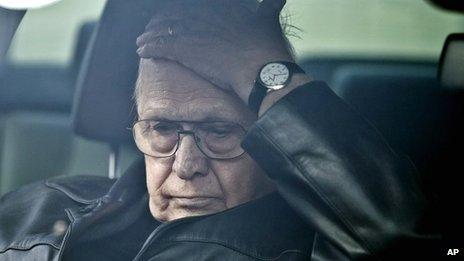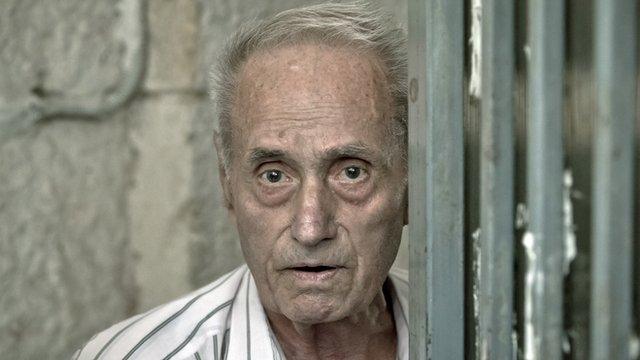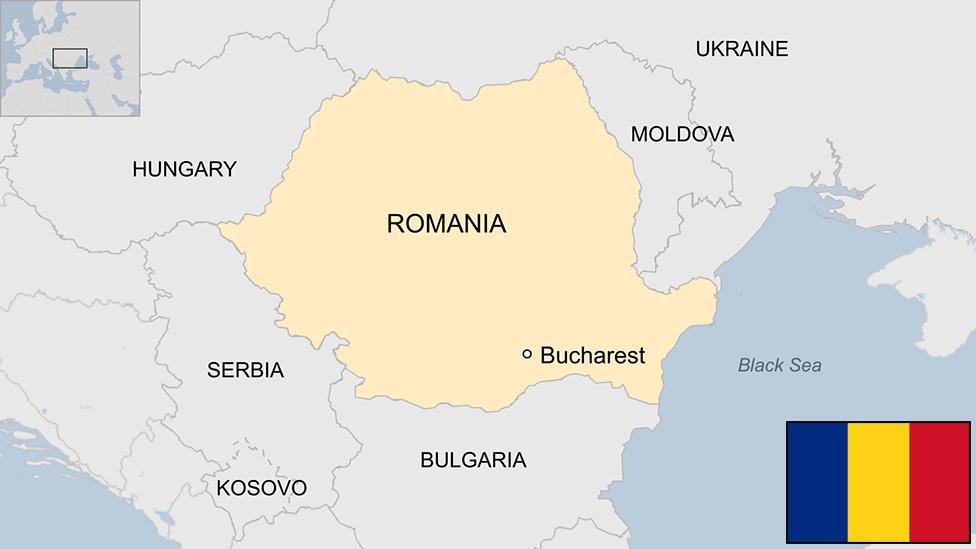Second Romanian prison commander charged with genocide
- Published

Ion Ficior, former commander of a communist labour camp, leaving the general prosecutors office in Bucharest
Romanian prosecutors have charged a second communist-era prison commander, Ion Ficior, with genocide.
Mr Ficior was in charge of the Periprava labour camp from 1958 to 1963 where 103 political prisoners died.
In September prosecutors charged Alexander Visinescu, head of the Ramnicu Sarat prison between 1956-1963.
The general prosecutors' office said Ficior had "introduced and co-ordinated a repressive detention regime, which was abusive, inhuman.''
The charges followed the discovery of five skeletons from unmarked graves near Periprava.
Officials reported that there were no coffins, clothes or personal possessions near the bodies.
"We have clear evidence, which we gave to the prosecutors already, that Ion Ficior has implemented during his rule at Periprava Prison, between 1958 and 1963, an extermination regime for political detainees, through a lack of medical assistance, a lack of adequate food and the application of poor treatment to the detainees," said Andrei Muraru of the Romanian Institute for the Investigation of Communist Crimes (IICCMER).
Following orders
Recently Mr Ficior denied that more than 100 people had died in his camp. According to the Associated Press news agency, which interviewed him in June, he remained unrepentant about the treatment of prisoners.
On being charged, Mr Visinescu told prosecutors he was only following orders.
They say political prisoners where Mr Visinescu was commander experienced beatings, hunger, cold and lack of medical treatment.
The head of the IICCMER, Andrei Muraru, said that both Mr Ficior and Mr Visinescu should pay the price for their role in the deaths of hundreds of prisoners.
"Both former prison commanders, Visinescu and Ficior, are in their 80s and they can no longer be incarcerated. But they should get a conviction for what they did 50 years ago. That they have been degraded as army men, that they've had their pensions taken away, all these things are very important in a democratic society. We want to show the difference between the totalitarian system these men served and the democratic system that will punish them for it. Regardless of the system they served, murder is murder," he said.
About 500,000 Romanians, including priests, teachers, doctors and peasants, were jailed as political prisoners in the 1950s as the communist authorities imposed a totalitarian system. In harsh prison conditions about a fifth of those inmates died, historians say.
- Published3 September 2013

- Published18 December 2024
